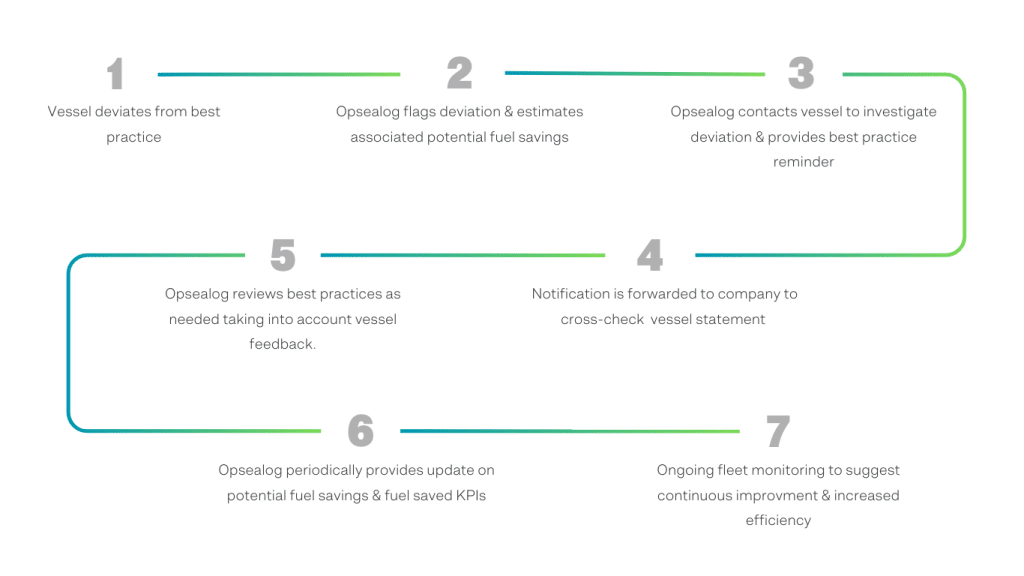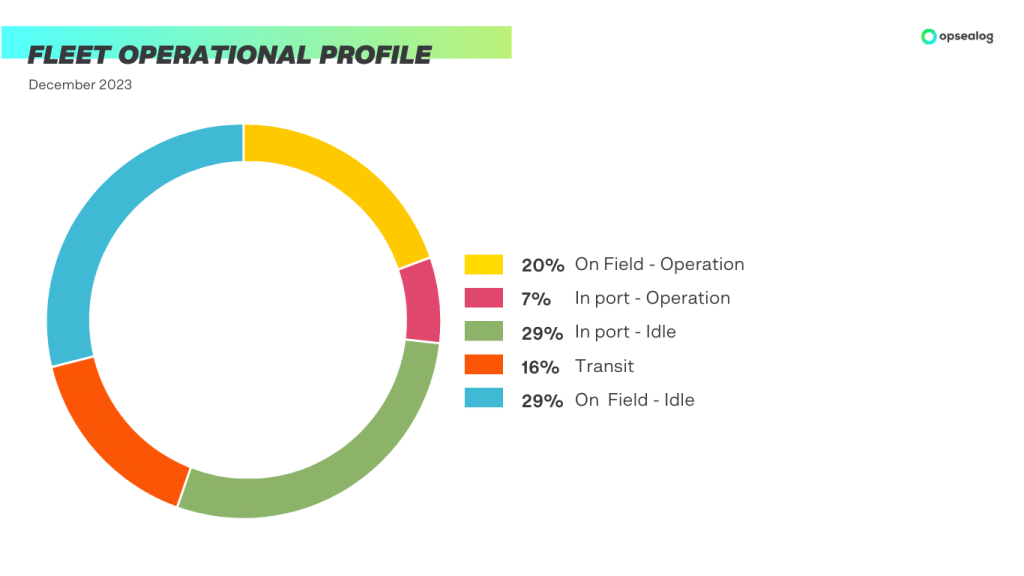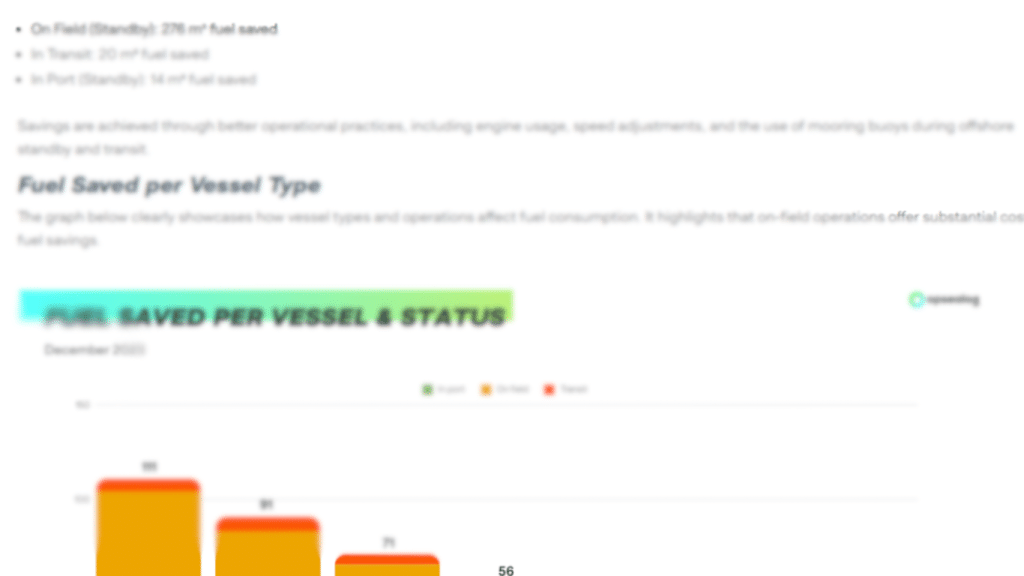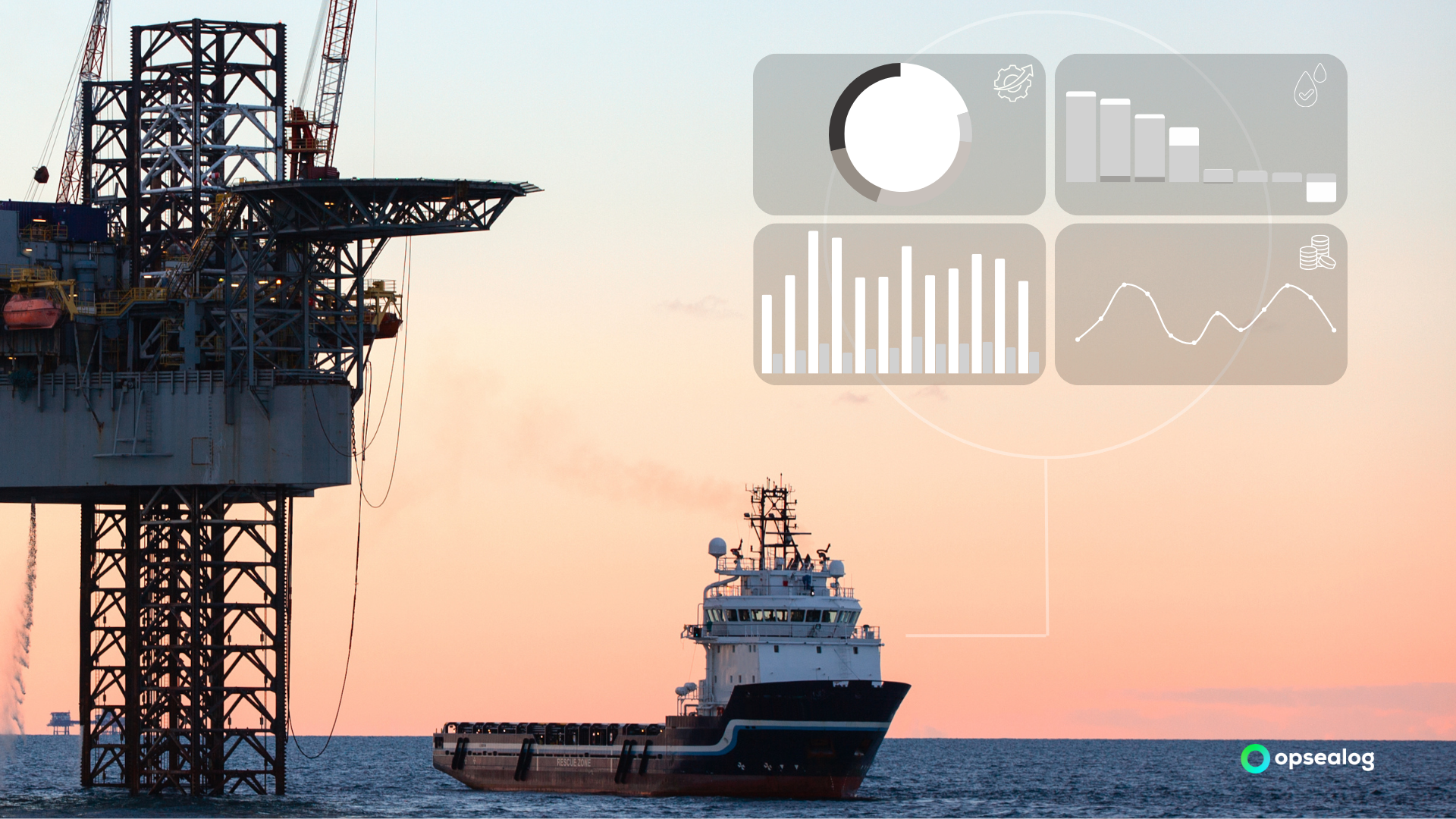Offshore Supply Vessels (OSVs) face unique challenges when optimizing fuel efficiency and operational practices. Streamlining operations to reduce costs and minimize environmental impact can be challenging with a diverse fleet serving various offshore activities. However, implementing fuel efficiency measures can significantly reduce operational costs and environmental impact. Reduced fuel consumption directly correlates to a lower carbon footprint, aiding compliance with environmental regulations and supporting global sustainability efforts. As a provider of data-driven solutions, we have worked with many clients to enhance their fleet’s fuel efficiency. This case study delves into how our fuel efficiency program has resulted in significant fuel, cost, and environmental savings on our client’s fleet.
Overview
In this case study, we examine the results of our fuel efficiency program across an average of +50 vessels, including W2W, USV, AHTS, FSIV, PSV, MPSV, and Survey Vessels. Learn how our Marine & Data experts analyze data from these vessels and provide our client with monthly reports, showcasing the substantial savings achieved.
Step 1: A Data-Driven Approach
Our digital solutions provide a data-driven approach tailored to our client’s operational needs, encompassing:
- Design-Based Consumption Models: Our experts developed AI-driven consumption models tailored to each vessel type, providing real-time insights into fuel consumption per activity.
- Best Practices Implementation: We identified and implemented “Best Practices” for each vessel based on its design and operational context, optimizing engine configurations, speeds, and operational modes.
- SisterShips Comparison System: Leveraging data from sister ships and vessels with similar characteristics, this system facilitated accurate benchmarking of vessel performance, enabling targeted optimization strategies.
- Data Integration and Cross-Check: Integration of data from various sources to validate consumption models and declared consumption, ensuring robust cross-checking of data.
- In-Depth Monitoring and Investigation: Our experts continuously monitored fleet performance, identifying deviations from best practices, and investigating root causes to provide tailored recommendations for improvement.
We provide daily, monthly, and yearly reports that monitor fuel consumption trends, including reported consumption (via StreamLog), estimated consumption (by our models), and sensor-tracked consumption (EFMS, AIS, weather).
Step 2: Our Fuel Efficiency Program

Step 3: Understanding the Fleet’s Operational Profile
OSVs are vital to offshore operations but are significant fuel consumers due to their varied and demanding operational profiles. To understand how improvements can be made, our team follows a structured assessment approach depending on the vessel’s operational context:
- In Transit (To port, to field, interfiled): Define the best engine and speed combination for the most optimized fuel consumption.
- On Field (Standby): Encourage vessels to operate in the most economical mode based on context (e.g., availability of buoys and anchors). Conduct studies on installing mooring buoys in shallow or deep waters. For standby within or at the 500m zone, understand the reasons and ensure its feedback, then encourage vessels to return to normal standby, outside 500m, if possible.
- In Port (Standby): Help vessels perform standby in port alongside or at anchorage by promoting the use of harbor generators, auxiliaries, or shore power.
To illustrate, below is a graphic representing the operational profile of our client’s fleet for one month. As shown, In-port Standby (Idle) and On-field (Idle) operations constitute 29% of each of the fleet’s main activities.

The Results
Fuel Saved and Potential Savings by Operation Type
In this report, the overall fuel saved in December is significant, especially for On-field operations, the fleet’s major activity:

Want to dive deeper? Just fill out the form below to download the full case study:
Read more in our blog about fuel efficiency in field transits.
If you haven’t yet, check out our latest video about Fuel Efficiency:

